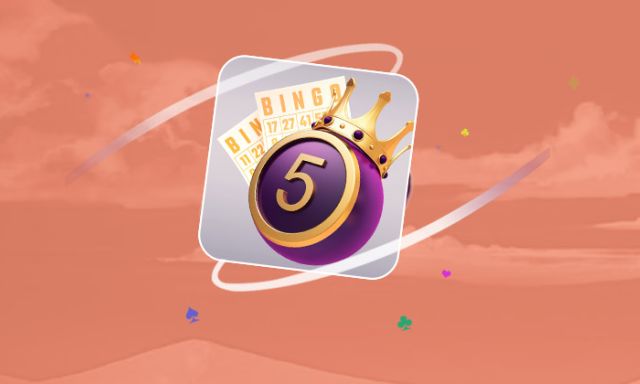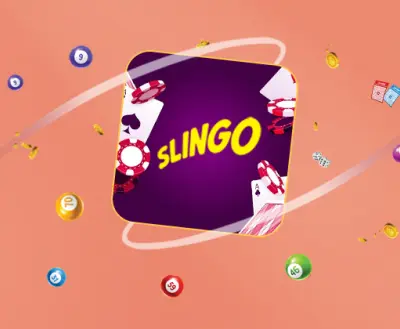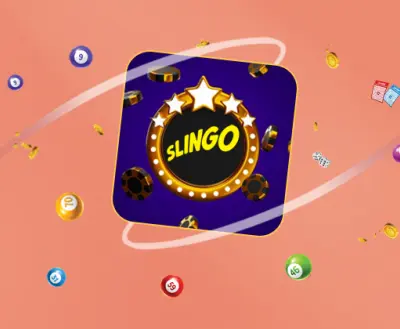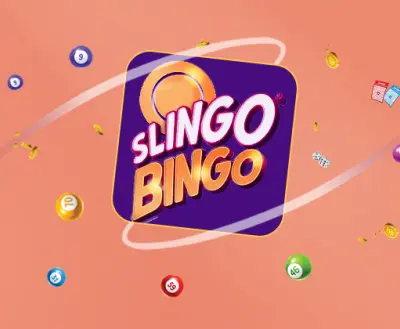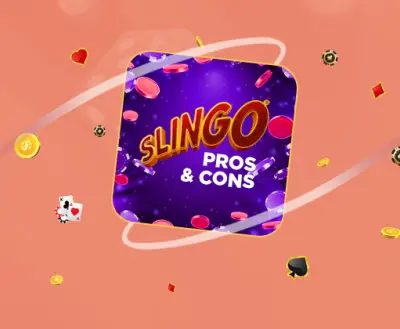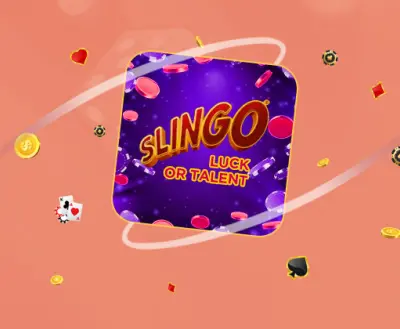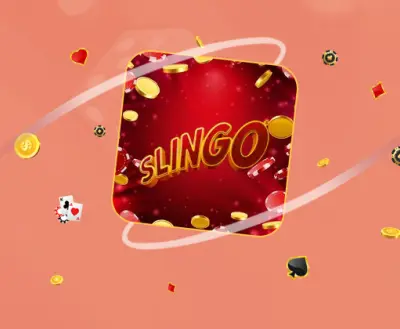The Ultimate Bingo Lingo Guide for Beginners - Speak Like a Pro
Welcome to our ultimate guide to bingo lingo, your key to sounding like a seasoned bingo pro. Now, some of you might be wondering, what is bingo lingo? Well, it's the vibrant jargon, the bingo calls and bingo expressions that bring every game to life.
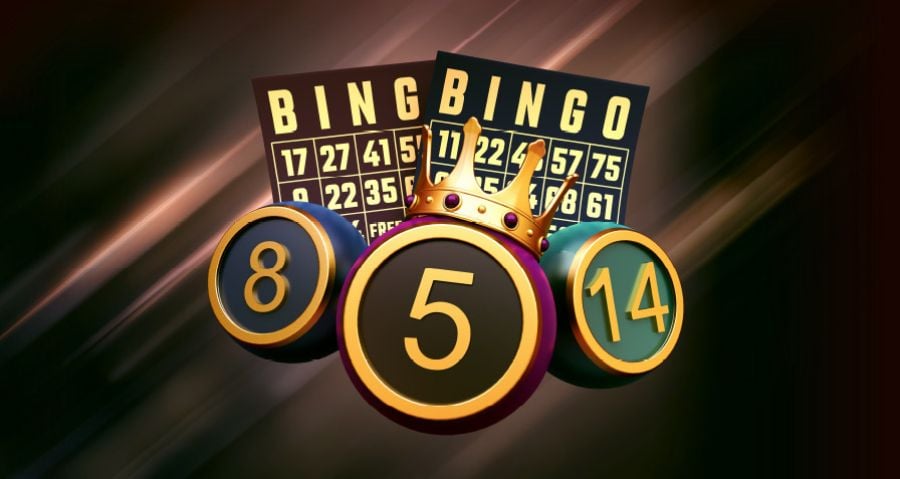
Grasping this language isn't merely about mastering bingo calls explained or browsing through a bingo lingo dictionary. No, it’s an integral part of the experience, a crucial tradition that enhances the fun and thrill of the game. After all, bingo isn't just about numbers, it's about the camaraderie, the shared laughs over funny bingo expressions, and the anticipation that builds with each bingo number nickname that's called out.
Our guide is meticulously crafted, filled with essential bingo phrases and meanings, tips on how to talk like a bingo pro, as well as enlightening information on bingo language variations around the world. Let us journey through the energetic world of bingo language together. After all, who doesn't love a game full of bingo slang and a crowd ready for some fun?
Understanding Bingo Lingo: A Breakdown
Key Terms: Bingo Calls, Phrases, Expressions
Just like any language, bingo lingo has its unique vocabulary. These terms revolve around three main categories: bingo calls, bingo phrases, and bingo expressions.
Bingo calls, the lynchpin of bingo lingo, are unique nicknames assigned to specific numbers that are drawn during a game. They're rich in creativity and often filled with humour and historical references. Take, for instance, the number '22.' In the lingo of the bingo world, this is called "Two Little Ducks," a playful moniker that reflects the visual resemblance of the digit 2 to a duck. Another interesting example would be '88', known as "Two Fat Ladies," a humorous comparison to the curvy shape of the number 8. These catchy calls don't just make the game more enjoyable, they also make numbers easier to recognize and remember in the heat of the game.
Bingo phrases, on the other hand, are idiomatic expressions that define certain scenarios or states within the game. For example, the term "full house" refers to a situation where a player has marked off all numbers on their bingo card, a winning condition in most versions of the game. Another phrase, "early bird," refers to the initial game of a bingo session. These phrases add an extra layer of complexity and sophistication to the game, making it a richer and more immersive experience.
Bingo expressions serve as a broader umbrella category encompassing both bingo calls and phrases. However, they're not limited to these. Bingo expressions include any colloquial term, phrase, or exclamation used during the game. Iconic expressions such as the triumphant cry of "Bingo!" when someone completes a winning pattern, or "House!" when a player achieves a full house, are part of this vibrant vocabulary. Each expression contributes to the unique, electrifying atmosphere that makes bingo more than just a game. It becomes an event, a shared experience that resonates with a sense of community and celebration.
How Bingo Lingo Works: Associating Numbers with Phrases
At its heart, bingo lingo is a mnemonic system associating numbers with phrases. This tradition, also known as bingo number calling, began in UK bingo halls and quickly spread across the world. The phrases often rhyme with the numbers they represent or resemble them visually, making the game more engaging and entertaining. For instance, the number 8 is known as "One Fat Lady," the silhouette of the digit mirroring the rotund figure of a plump woman.
In a typical game, when a number is drawn, the caller doesn’t simply state the number. They embellish it with its corresponding phrase or nickname. This lively and entertaining method of calling adds colour to the game and ensures players are always on their toes!
Importance of Bingo Lingo in Gameplay
Understanding bingo lingo is not merely about learning the language; it's about being part of a shared experience. Bingo isn't just a game; it's a social event where bingo expressions and calls set the tone. Mastering bingo phrases and the bingo terms glossary enhances the overall gameplay, creating an atmosphere that's both fun and exciting.
The vibrant lingo allows players to immerse themselves fully in the bingo culture, fostering a sense of community and belonging. Whether you're a newbie or a seasoned player, there's nothing quite like the thrill of recognizing a bingo call and daubing that number off your card!
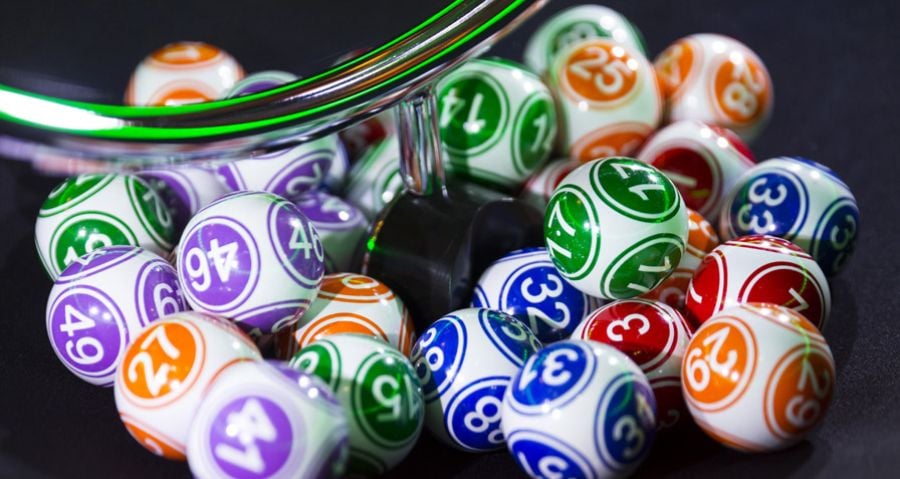
Popular Bingo Calls Explained
List of Common Bingo Calls and Their Meanings
Let's delve into some popular bingo calls to help you understand the language better. Remember, the aim is not only to learn bingo lingo but to embrace it as a fun aspect of the game. Here are some commonly used bingo calls:
- One Little Duck (2): A classic example of a visual call. The shape of the number '2' looks quite like a single duck.
- Kelly's Eye (1): This call has a few theories behind its origin. Some believe it's named after the infamous one-eyed Australian outlaw Ned Kelly, while others suggest it may relate to the military term "Kelly's Eye," used for the number one on dice and cards.
- Two Little Ducks (22): One of the most straightforward visual calls. The number '22' resembles two ducks side by side.
- Duck and Dive (25): A combination of visual representation and rhyming slang. The '2' looks like a duck, while '5' resembles a diving pose. The entire phrase also rhymes with '25'.
- Two Fat Ladies (88): This call has a visual origin. The digit '8' is reminiscent of a lady, and two eights side by side are called "Two Fat Ladies," making this call a favourite among bingo players for its humour and wit.
Unique and Funny Bingo Expressions
As we know, Bingo is a game infused with a generous dose of humour and whimsy, and that's most evident in the unique and funny bingo expressions that punctuate the gameplay. This collection of colourful calls introduces an element of fun and surprise, adding another layer to the game's social and interactive nature. Here are a few standout examples that we at Foxy Bingo are particularly fond of:
- Legs Eleven (11): This call is a visual joke, playing on the resemblance between the number 11 and a pair of legs. The phrase "legs eleven" also has its roots in World War II military slang, offering a quirky historical connection that illustrates bingo lingo's rich cultural tapestry.
- Dirty Gertie (30): A bit of rhyming fun comes into play here. 'Dirty Gertie' is a playful expression that rhymes with the number 30. The name 'Gertie' doesn't hold any specific significance but was likely chosen for its old-fashioned charm and its ability to evoke a giggle from the crowd.
- Buckle My Shoe (32): This expression is steeped in nostalgia, harking back to the well-loved nursery rhyme, "One, Two, Buckle My Shoe." The use of a familiar childhood rhyme gives this call a warm, familiar feeling and adds an element of nostalgia to the mix.
These expressions are just a few examples of the creativity and humour that make bingo such a unique, enjoyable experience. It's all part of the vibrant, playful language that breathes life into every bingo hall and online game room. So next time you're engrossed in a game, don't forget to listen out for these comical calls. You never know when a "Dirty Gertie" or a "Buckle My Shoe" might come up and bring a smile to your face.
Variations in Bingo Language
Bingo is a global phenomenon, and while the game itself is universally recognized, the lingo can vary quite dramatically from one country to another. This is part of what makes the game so rich and interesting.
Take the United Kingdom, for instance, where bingo calls are steeped in rhyme and historical references, as we've previously discussed. Contrast this with the United States, where the calls are typically a straightforward reading of the numbers, with the occasional colloquialism thrown in.
In Australia, you might hear "Jump and Jive" for 35, while Canadian players use French calls in Quebec, such as "quatre-vingt-dix" for 90. This diversity adds an extra layer of intrigue to the game, as each region puts its unique spin on the bingo calls.
The regional variations in bingo lingo aren't just amusing, they're essential for maintaining the game's global appeal. Familiarising yourself with the local lingo can be key to participation. It's part of immersing yourself in the game and bonding with fellow players.
Being aware of the regional variations can also be a great ice-breaker if you're playing in a new location or with a new group. And who knows, you might even pick up a few foreign phrases along the way!
Learning the Bingo Slang
Mastering the bingo lingo is a surefire way to enhance your enjoyment of the game and feel like part of the community. But how can you learn these terms quickly and effectively?
There are numerous resources available online for learning bingo calls. Websites and apps dedicated to bingo lingo can provide comprehensive lists and explanations of the various terms.
At Foxy Bingo, we provide an interactive bingo lingo dictionary to help beginners get to grips with the game's unique language. It's an excellent tool to have on hand while you're playing and will have you speaking like a pro in no time.
To accelerate your learning, here are a few tried and tested tips:
- Practice Makes Perfect: Like any language, the more you use it, the more fluent you'll become. Play often, and don't be afraid to use the lingo during your games.
- Flashcards: Create flashcards with the number on one side and the corresponding bingo call on the other.
- Bingo Lingo Games: Use learning games to make the process fun. It could be a bingo-themed crossword, word search, or even a bingo lingo quiz night.
Using Bingo Lingo Like a Pro
Now that you're familiar with the terms, how do you use bingo lingo like a pro?
For beginners, the key is confidence. Don't be shy about calling out your numbers loudly and clearly. Remember, it's all in good fun. Here are some techniques to help you sound like a pro:
- Embrace the Rhyme: Much of bingo lingo is rhyming slang. Emphasise the rhymes to add a touch of authenticity to your calls.
- Master the Rhythm: Many bingo calls have a rhythm to them, like "two little ducks, 22". Mastering this can really make your calls stand out.
- Have Fun: Most importantly, have fun with it. Bingo is a social game, and the lingo is there to add to the enjoyment.
If you're looking to master the most essential calls, here are a few you should prioritise:
- Kelly's Eye (1)
- One Little Duck (2)
- Cup of Tea (3)
- Knock at the Door (4)
- Man Alive (5)
- Half a Dozen (6)
- Lucky (7)
Bingo expressions aren't just for calling numbers, they can also be used to add flair to your game commentary. For example, if someone is on a winning streak, you might say they're "cooking on gas", or if there's a close call, you might say it's a "near squeak". These expressions add colour to the game and bring the excitement to another level.
Conclusion
Understanding and embracing the unique language of bingo - the bingo lingo - is an essential part of fully immersing yourself in the game. This vibrant lingo adds a layer of fun, history, and cultural richness that sets bingo apart from other games. From the intriguing number nicknames to the regional variations, every phrase tells a story that contributes to the colourful world of bingo.
To all the beginners out there, remember, learning bingo lingo is not just about remembering a list of phrases. It's about understanding the spirit of the game and becoming part of a warm and welcoming community. So, don't get daunted if you can't remember all the phrases right away. Keep playing, keep learning, and most importantly, keep having fun!

